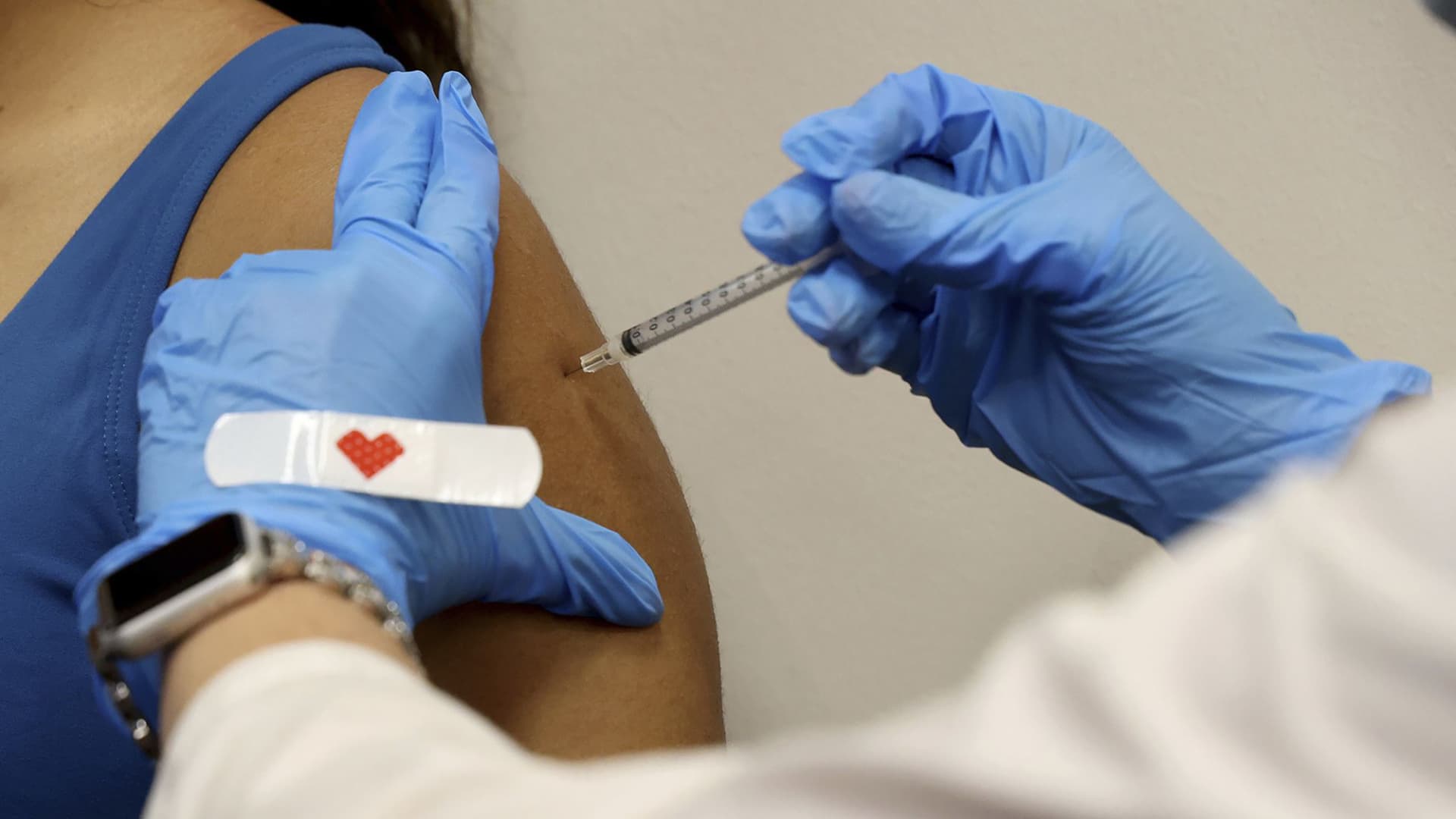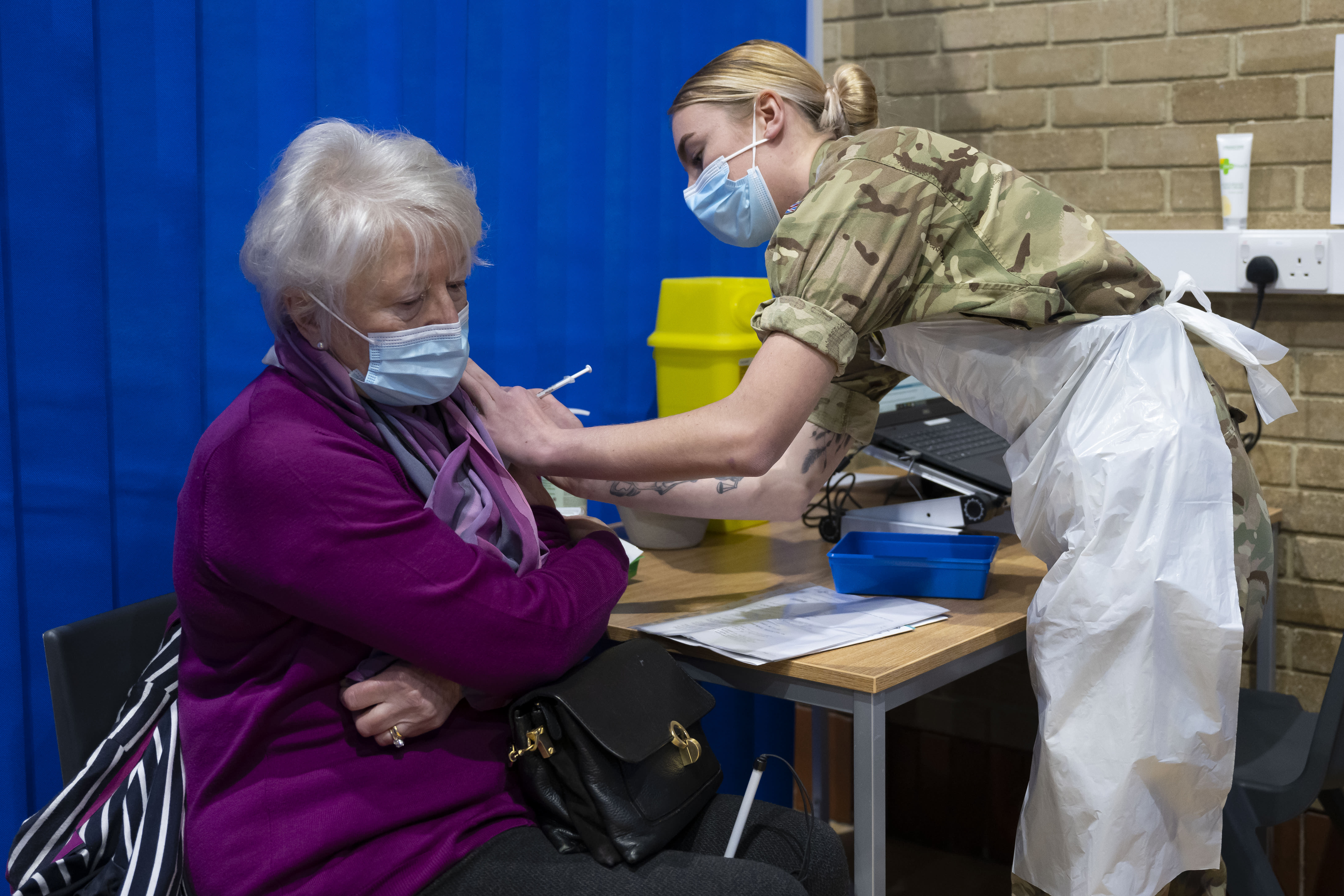U.S. will screen people arriving from Uganda for Ebola as East African nation battles outbreak
Uganda is battling on Ebola outbreak with 63 confirmed cases and 29 deaths. No cases of Ebola have been reported in the U.S., according to the CDC.

Doctors walk inside the Ebola isolation section of Mubende Regional Referral Hospital, in Mubende, Uganda, Thursday, Sept. 29, 2022.
Hajarah Nalwadda | AP
The U.S. will screen passengers for Ebola at five designated airports if they have traveled in Uganda within three weeks prior to their arrival, federal officials said on Thursday.
Uganda, a nation in East Africa, is battling a deadly outbreak of Ebola with 63 confirmed and probable cases including 29 deaths, according to the World Health Organization. No cases of Ebola have been reported in the U.S., the Centers for Disease Control and Prevention said.
The CDC is working closely with Uganda's health ministry and the WHO to respond to the outbreak, according to U.S. health officials.
The U.S. Embassy in Uganda, in a health alert Thursday, said passengers who have been in the country within 21 days of their arrival in the U.S. will be routed to one of five airports: New York JFK, Newark, Atlanta, Chicago O'Hare or Washington Dulles.
Passengers arriving from Uganda at those airports will undergo temperature checks and verification of their contact data, a federal health official said. Airlines will send passenger information to the CDC so the agency can conduct health follow-ups, the official said. Contact information will also be sent to state health departments so they can conduct follow-ups locally.
The health screenings are based on Ebola's incubation period. People infected with the virus are not contagious until symptoms appear, which can take anywhere from two to 21 days after exposure, the CDC said. On average, it takes about eight to 10 days for symptoms to appear.
Uganda is battling an outbreak caused by a strain of Ebola called Sudan ebolavirus. It spreads through direct contact with body fluids of a person who has fallen ill with the virus or died from it, as well as from infected animals and contaminated objects, according to the CDC. Ebola does not spread through airborne transmission, the health agency said.
Symptoms include unexplained hemorrhaging, bleeding or bruising, fever, severe headache and muscle and joint pain, as well as stomach pain, diarrhea and vomiting. Other symptoms include red eyes, skin rash and hiccups.
There is no vaccine licensed by the Food and Drug Administration to protect against the Sudan ebolavirus strain. The FDA approved a vaccine to combat Zaire ebolavirus based on animal studies, but it's not seen as providing protection against the Sudan strain. There is also no FDA-approved treatment for Sudan ebolavirus.
The CDC, in a health alert Thursday, said health care providers should be on the alert for any patients suspected of having Ebola. Physicians and other clinicians should obtain a detailed travel history for any patients suspected of having the disease, particularly for people who have been to the regions in Uganda where there is an outbreak.
The virus has been confirmed in Uganda's Mubende, Kasanda, and Kyegegwa districts.

 ShanonG
ShanonG 
































